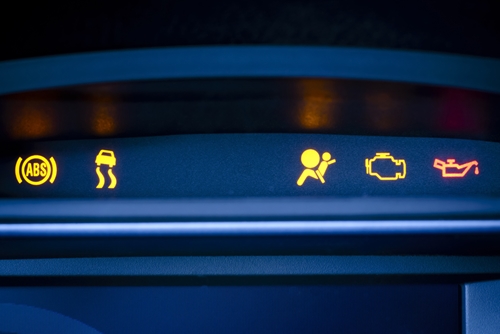Fountain Valley, Calif. – Oct. 13, 2017 – Hyundai Motor America has recalled more than 400 vehicles potentially equipped with defective crankshaft assemblies, according to documentation submitted to the National Transportation Safety Administration. The campaign affects 2017 Santa Fe sport utility vehicles with production dates ranging from Jan. 26, 2017 to Feb. 13, 2017. HMA estimates that 25 percent of the models named in the recall actually contain the defective parts.
The Defect
Affected vehicles could contain crankshaft assemblies featuring crankshaft pins with surface irregularities. These components may lead to premature engine bearing degradation and damage. In the event that the engine bearing becomes overly worn or flawed during operation, the vehicle could stall suddenly. This increases the likelihood of an accident and consequently poses a serious risk to occupants. That said, HMA has yet to receive field reports connecting the defective crankshaft assemblies to any accidents or injuries.
Owners operating vehicles containing the problematic parts may hear abnormal engine noises, experience reduced motive power or see the check-engine or oil-pressure warning lamps illuminate.
Timeline of Events
On May 2, 2017, HMA received a field report that described a situation in which a customer heard a knocking sound while operating his Santa Fe. HMA personnel recovered the engine from the SUV for further evaluation soon after. Engineers at the Hyundai North American Quality Center in Chino, California launched an investigation into the component. Meanwhile, HMA kept an eye on the market over the course of June, July and August in an effort to pinpoint additional occurrences of knocking. The Korean automaker gathered three field reports mentioning abnormal engine noise over this span, all of which involved Santa Fe models. Additionally, one of these reports outline an instance of sudden engine failure. On Aug. 7, HMA started recovering the engines from the vehicles in these reports.
Later that month, HMA engineers reviewed these parts, in addition to the engine from the original report. They found that all four engines showed signs of bearing seizure, a condition linked to crankshaft pins with significant surface irregularities. The car company discovered that these components were the result of ineffective production processes. Specifically, staff at the Hyundai Motor Company Asan Plant in Korea had failed to fabricate the crankshaft assemblies using proper heat treatment, a result of skewed heating coils. The facility amended its processes and corrected the problem during a tool maintenance session in January 2017.
On Sept. 13, the HMA Technical Committee met to analyze the results of the investigation into the crankshaft pins and determined that the potential operating outcomes, most notably sudden engine stalling, posed a serious threat to occupants. The group then ultimately decided to conduct a voluntary safety recall.
HMA notified dealers Sept. 27.
The Solution
The car company has directed dealers to inspect and, if necessary, replace the engines in affected vehicles free of charge, according to the NHTSA. HMA plans to notify owners via first-class mail Oct. 18. Owners in need of more immediate assistance can reach out to Hyundai customer service personnel at (855) 371-9460. Callers should use the internal recall identification number 168. Owners can also connect with the NHTSA directly through its Vehicle Safety Hotline at (888) 327-4236.


